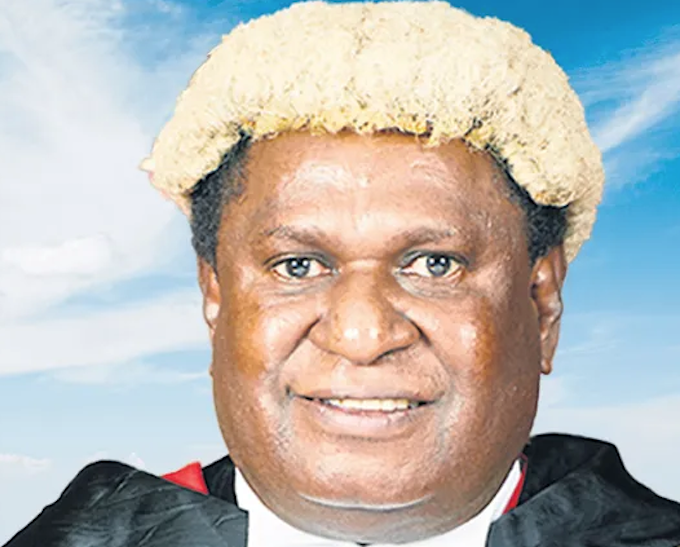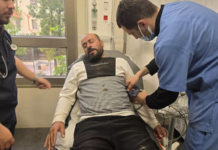
By Boura Goru Kila in Port Moresby
People accused under Papua New Guinea’s Cybercrime Code Act may not always find free speech protection offered by the Constitution.
In a landmark decision, the Supreme Court has ruled that this law does not contravene the provisions of Section 46 which provides for freedom of expression.
The decision is a serious warning to offending users of social media and the internet that they might find themselves with fines of up to K1 million (NZ$430,000), or jail terms of between 15 and 25 years.
A Supreme Court panel comprising Chief Justice Sir Gibbs Salika and Justices Les Gavara-Nanu, David Cannings, Kingsley Allen David and Derek Hartshorn made this determination in Waigani on Friday.
The constitutional reference was made by National Court judge Teresa Berrigan during the trial of Kila Aoneka Wari, who was charged with criminal defamation under section 21 (2) of the Cybercrime Code Act 2016.
Judge Berrigan then referred for Supreme Court interpretation on whether Section 21 contravened the Freedom of Expression provision of the National Constitution.
Reading the judgment on behalf of his fellow judges, Sir Gibbs said: “We (Supreme Court) consider there is a clear and present danger to public safety, public order and public welfare if publication of defamatory material by use of electronic systems or devices were allowed to be made without restriction, including by criminal sanction.”
Sir Gibbs said the court had determined that the regulation and restriction of the exercises of the right to freedom of expression imposed by section 21 (2) of the Cybercrime Code is “reasonably justifiable in a democratic society having a proper respect for the rights and dignity of mankind.”
‘Necessary’ for public safety
Sir Gibbs said the court was satisfied that the first, second and third interveners had discharged the burden in showing that section 21 (2) of the Cybercrime Code complied with the three requirements of section 38 (1) of the Constitution in that:
- FIRST, it has been made and certified in accordance with section 38 (2) of the Constitution.
- SECONDLY, it restricts the exercise of the right to freedom and expression and publication that is “necessary” for the purpose of giving effect to the public interest in public safety, public order and public welfare; and
- THIRDLY, it is a law that is reasonably justifiable in a democratic society having a proper respect to the rights and dignity of mankind.
“We conclude that no, section 21 (2) of the Cybercrime Code Act is not invalid. Although it (Cybercrime Code Act) restricts the exercise of the right to freedom of expression and publication in section 46 of the Constitution it is a law that complies with Section 38 of the Constitution and the restriction it imposes is permissible under section 46 (1) (C) of the Constitution.
The questions that Justice Berrigan referred to the Supreme Court were:
- DOES section 21(2) of the cybercrime Code Act regulate or restrict the right of freedom of expression and publication under section 46 of the Constitution?
- IF yes to question 1, does section 21 (2) of the Cybercrime Code Act comply with section 38 of the Constitution?
- IS section 21(20 of the Cybercrime Code Act) invalid for being inconsistent with section 46 of the Constitution?
The court answered yes to questions and one and two and answered no to question three.
The court also ordered that each intervener will bear their own costs.
Wari is the fourth intervener in the proceedings.
Others are Attorney-General Pila Niningi (first intervener), acting public prosecutor Raphael Luman (second intervener), Public Solicitor Leslie Mamu (third intervener).
Section 21(2) of the Cybercrime Code Act is the law on defamatory publication.
It makes any defamatory publication using any electronic device as an offence with a penalty of K25,000 to K1 million fine, or imprisonment not exceeding 15 to 25 years.
Boura Goru Kila is a reporter for PNG’s The National. Republished with permission.










































